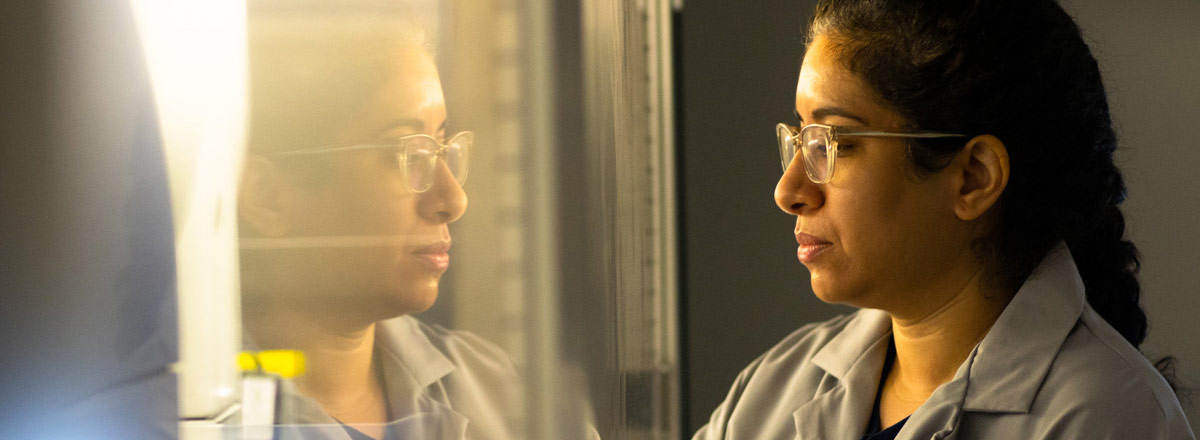About the symposium
The Rising Stars Symposium showcases the biomedical research of exceptional postdoctoral and junior faculty candidates from across the country. Candidate selections are based on academic achievements, research scholarship and general fit with Sanford Burnham Prebys laboratories.
We invite you to apply for this valuable career, networking and professional development event. We will showcase the biomedical research of exceptional scientists, especially those seeking:
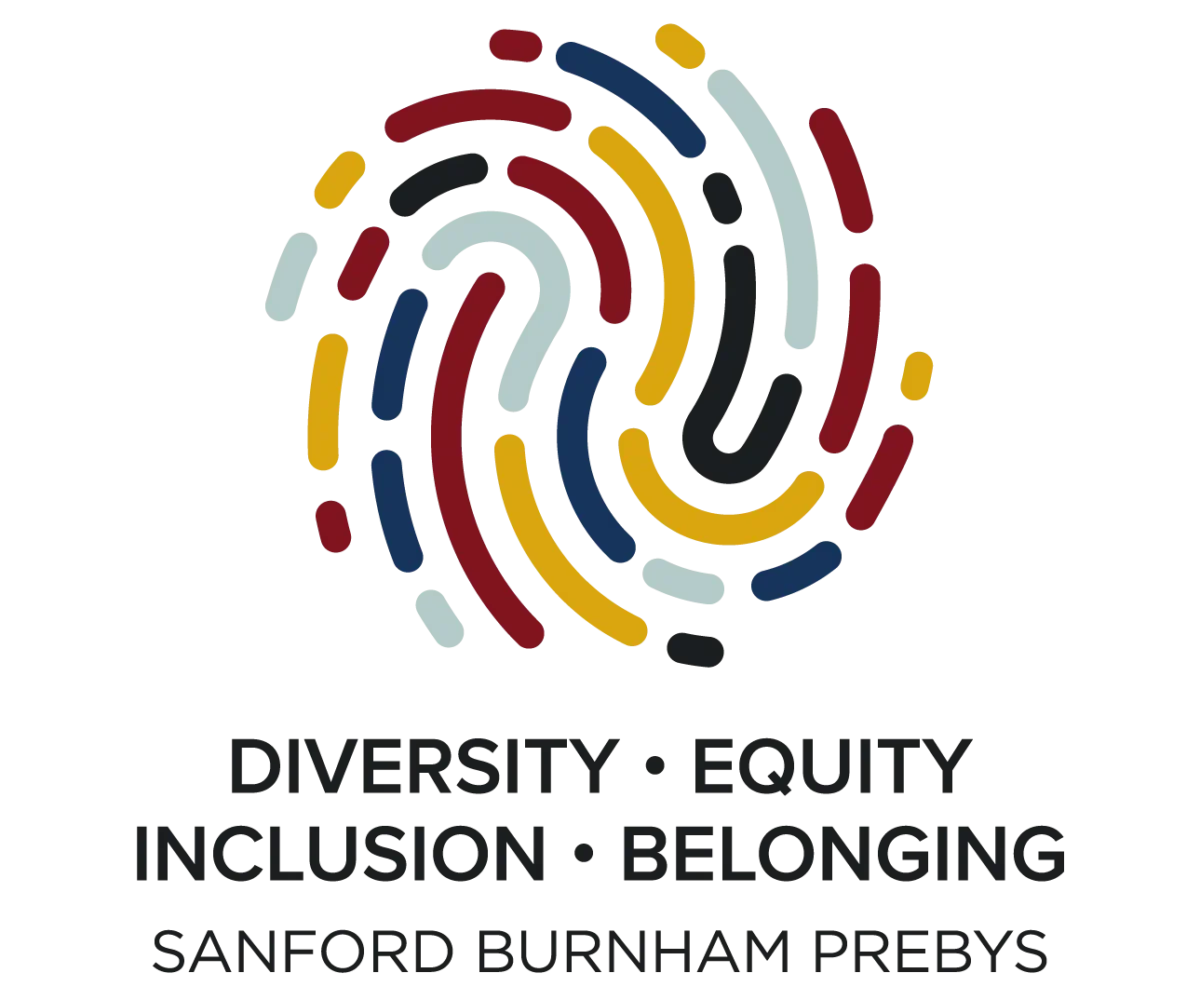
- Postdoctoral Opportunities – For late-stage doctoral students who are less than two years from completing their PhD program
- Junior Faculty Opportunities – For late-stage postdoctoral scholars seeking faculty appointments
Selected candidates will be invited to:
- Present research in an oral format
- Network with students, postdoctoral fellows and faculty
- Attend a reception to celebrate diversity and science
- Participate in a professional development session
- Tour laboratories and core facilities
- Meet with faculty to learn about career opportunities at our Institute
This event is hosted by the NCI-designated Cancer Center’s Diversity, Equity and Inclusion (DEI) Team and the DEI Recruiting Committee. We strive to create an inclusive workforce through hiring practices and recruitment and retention strategies that are equitable and result in increased representation.
Speakers
Keynote Speaker
Professor of Pharmacology
Assistant Vice Chancellor for Health Sciences Faculty Affairs
UC San Diego
“Excelling in Science and Fostering Inclusive Excellence”
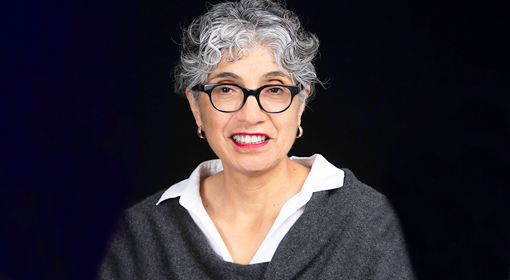
Dr. Trejo studies how cellular responses are regulated by G protein-coupled receptors in the context of vascular inflammation and cancer. She has made numerous novel discoveries related to the regulation of cell signaling in endothelial dysfunction and breast cancer progression. Dr. Trejo is committed to promoting diversity in the biomedical sciences and mentoring early-career scientists. Her awards for fostering diversity include the ASCB/HHMI Prize for Excellence in Inclusivity and the SACNAS Outstanding Mentor Award.
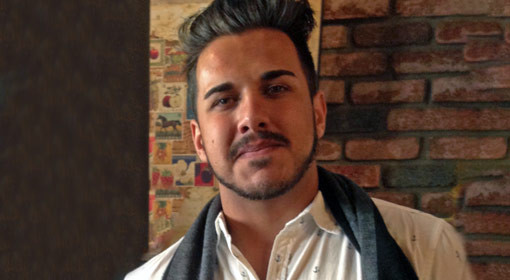
Terrance Haanen
PhD candidate
University of Michigan
“Mutant PPP2R1A induces the expression and secretion of IGFBP2 to promote uterine serous carcinoma metastasis”
Terrance Haanen is a graduate research assistant in Dr. Goutham Narla’s lab at the University of Michigan. His research focuses on uterine serous carcinoma, an aggressive form of uterine cancer that spreads easily to other parts of the body. Haanen’s research aims to uncover the molecular pathways that cause uterine tumors to spread, which could help scientists learn how to better prevent and treat uterine cancer.
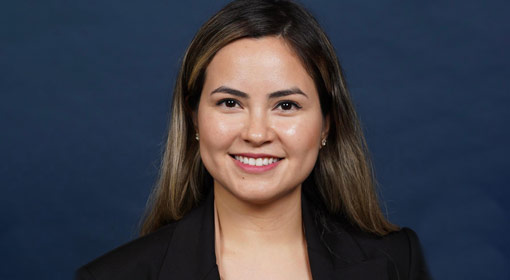
Evelyn Sanchez Hernandez
PhD candidate
Loma Linda University School of Medicine
“Glucocorticoid receptor regulates and interact with LEDGF/p75 in prostate cancer cells to promote docetaxel resistance”
Evelyn Sanchez Hernandez is a PhD candidate at Loma Linda University School of Medicine conducting her research in Dr. Carlos A. Casiano’s lab. She is studying prostate cancer, the second leading cause of cancer death in the United States. By working to understand why prostate cancer becomes resistant to treatment, her research could help us discover better ways to treat this disease and prevent it from spreading.
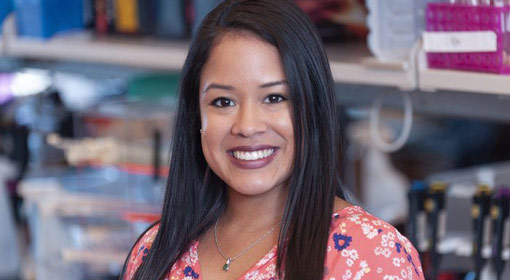
Laura Menocal
PhD candidate
Weill Cornell Graduate School of Biomedical Sciences
“Antigen-driven epigenetic rewiring drives rapid exhaustion of memory T cells in progressing tumors”
Laura Menocal is a PhD Candidate at the Weill Cornell Graduate School of Biomedical Sciences working in Dr. Andrea Schietinger’s lab. Her research focuses on memory T cells, immune cells that survive in the body long term, but rapidly lose their function during tumor formation. Menocal is studying what drives this loss of function at the molecular level. This knowledge will help us leverage memory T-cells into new therapies for cancer
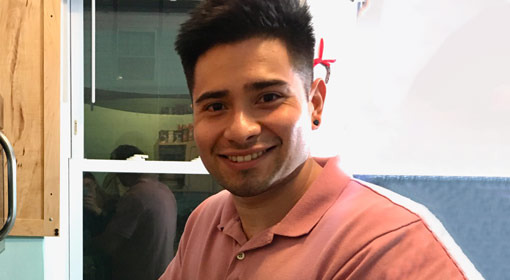
Francisco Fernandez
PhD candidate
Harvard University
“Mechanistic insights into neurofibromin function from pathogenic NF1 missense mutations”
Francisco Fernandez is a PhD candidate at Harvard University conducting research in James A. Walker’s lab. His work focuses on type 1 neurofibromatosis (NF1), a rare genetic disorder that causes tumors to grow on nerves throughout the body. Fernandez is studying the numerous small genetic mutations that drive NF1 in the hopes of better understanding the disease and developing new targeted therapies for it.
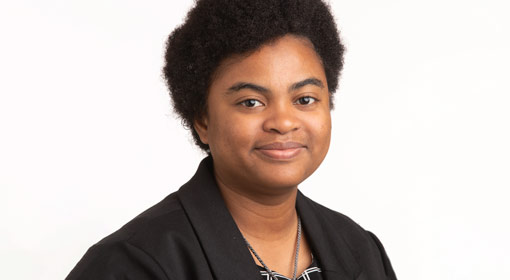
Akpedje Dossou
PhD candidate
University of North Texas Health Science Center
“In vitro evaluation of mannose-functionalized lipoprotein nanoparticles for the targeting of tumor-associated macrophages“
Akpedje Dossou is a PhD candidate at the University of North Texas Health Science Center, where she conducts her research in Dr. Andras Lacko’s lab. Her research aims to improve the efficacy of certain therapies for advanced melanoma that target the immune cells tumors use to grow. By uncovering new ways to better deliver therapies to melanoma cells, her work could help improve treatment for melanoma as well as other aggressive cancers.
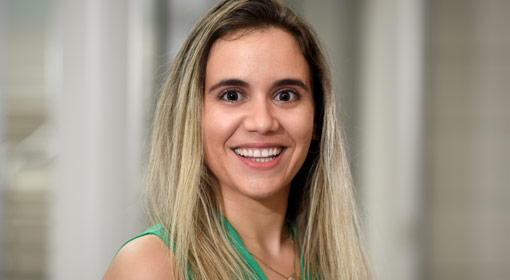
Jessica Felix
PhD candidate
Baylor College of Medicine
“Regulation of pyrimidine synthesis via N-acetylaspartate in fat cells influences body weight”
Jessica Felix is a PhD candidate at Baylor College of Medicine, where she conducts her research in adipose tissue metabolism in Dr. Sean Hartig’s lab. She is studying fat cells to discover the metabolic role of aspartoacylase, an enzyme found in fat cells but whose function has been predominantly described in the brain. By illuminating how this enzyme functions outside of the brain, her work could yield new treatments for obesity and other systemic metabolic disorders.
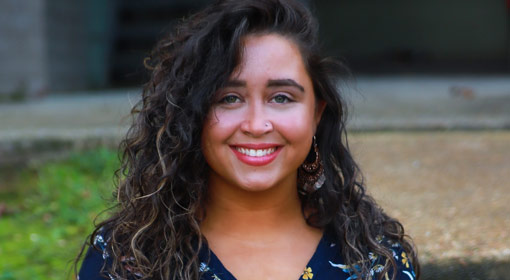
Geena Ildefonso
Postdoctoral Research Associate
University of Southern California
“Modeling the complex multi-cellular ecosystem of the tumor microenvironment using omics data“
Dr. Geena Ildefonso is a postdoctoral research associate at the University of Southern California, completing her research in Dr. Stacey Finley’s lab. She is using computational modeling to better understand the complex multi-cellular ecosystem of the tumor microenvironment in colorectal cancer. Understanding the cell-cell interactions in the tumor microenvironment is a major focus for cancer immunotherapy, and Ildefonso’s work will help generate a framework that could help predict and test these therapeutic approaches.
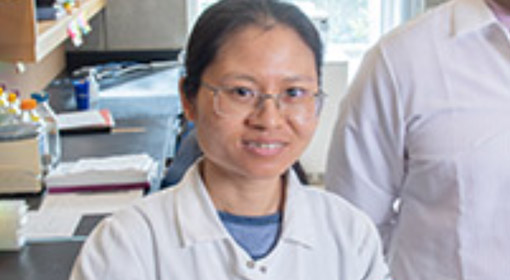
Linh Vuong
Assistant Project Scientist
UC Irvine
“A novel approach to targeting skin cancer with small molecule inhibitor”
Dr. Linh Vuong is an assistant project scientist working in Dr. Anand Ganesan’s lab at the University of California, Irvine. Her research focuses on melanoma, one of the most common skin cancers and one with a high risk of spreading. She is working to discover therapeutic approaches that can stop melanoma tumors from forming new blood vessels, which could help stop them from growing and spreading.
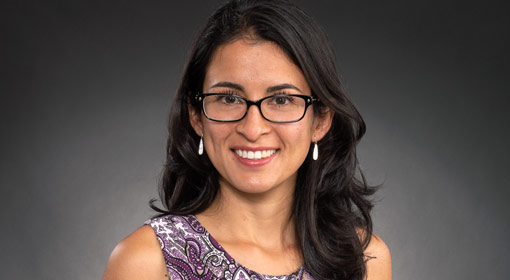
Johanna Melo-Cardenas
Postdoctoral Research Fellow
St. Jude’s Children’s Research Hospital
“Insights into the fibrotic progression of the myeloproliferative neoplasms”
Dr. Johanna Melo-Cardenas is a postdoctoral research fellow at St Jude’s Children’s Research Hospital, where she conducts her research in Dr. John Crispino’s lab. Her research focuses on myelofibrosis, a rare and difficult-to-treat blood cancer. Her work has helped uncover a previously unknown signaling pathway in myelofibrosis, and this pathway could help lead to new therapeutic strategies for myelofibrosis to help address this medical need.
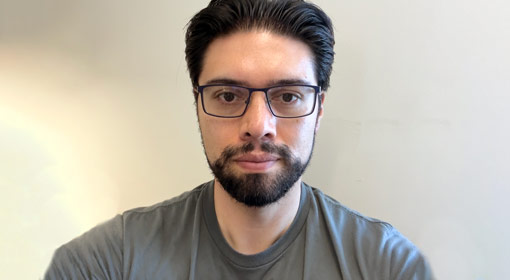
Guillermo Rivera-Gonzalez
Senior Scientist
Washington University in St. Louis
scRNA-seq and genetic barcoding uncover novel skin adipose hierarchy and early differentiation mechanisms of adipocyte precursors”
Dr. Guillermo Rivera Gonzalez is a senior scientist at Washington University in St. Louis, where he works in Dr. Samantha Morris’ lab. He is studying the process the body uses to produce fully developed fat cells from preexisting precursor cells. Uncovering the complex dynamics that regulate fat cell differentiation could help yield better therapeutic strategies to address the obesity epidemic.
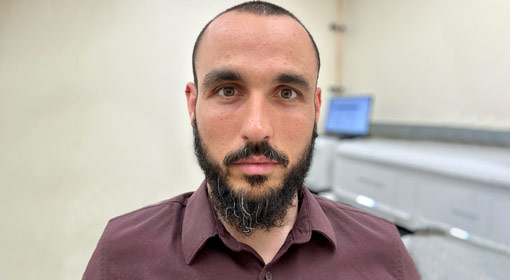
Miguel Reina-Campos
Postdoctoral Fellow
UC San Diego
“Leveraging tissue T cell immunity to empower immunotherapies”
Dr. Miguel Reina-Campos is a postdoctoral fellow at University of California, San Diego, conducting his research in Dr. Ananda Goldrath’s lab. His research focuses on memory T cells, immune cells that survive in the body and provide long-term protection from pathogens. Reina-Campos is studying the adaptations these cells use to survive in different tissues throughout the body, such as in tumors, which will help inform new immunotherapy strategies for cancer.
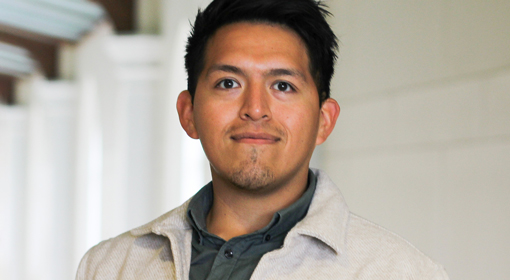
Colwyn Headley
Postdoctoral Fellow
Stanford University
“Building the case for mitochondrial transplantation as an anti-aging immune booster”
Dr. Colwyn Headley is a postdoctoral fellow at Stanford University, where he conducts his research in Dr. Philip Tsao’s lab. His research focuses on the metabolism of cells within the immune and cardiovascular systems with a particular emphasis on mitochondria, structures within cells that produce energy. Mitochondrial function typically declines with age, and Dr. Headley is investigating whether transplanting younger and healthier mitochondria into aged cells could help address age-related health issues.

